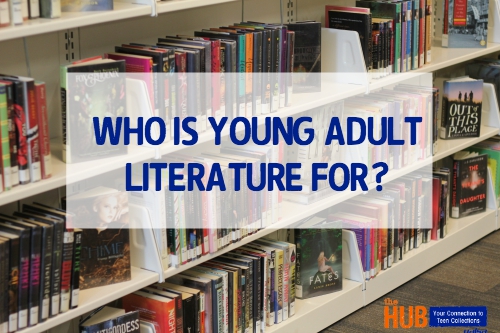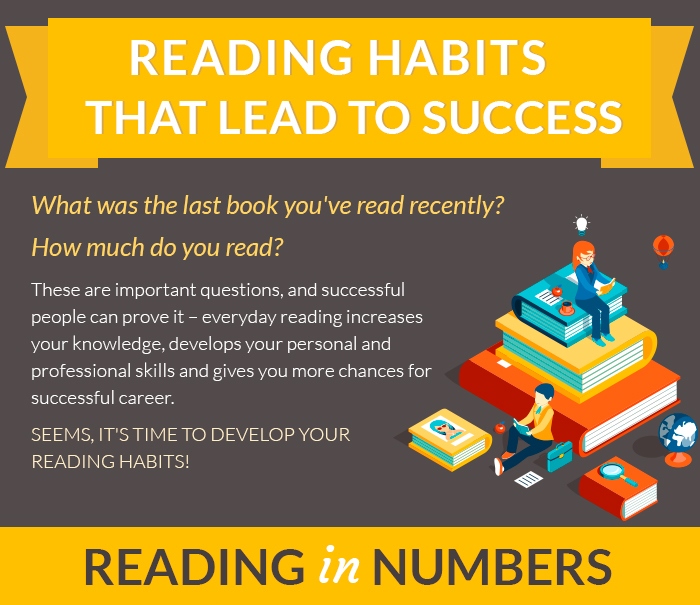Young adult literature, often abbreviated as YA literature, has witnessed a remarkable surge in popularity in recent years. This genre, intended primarily for readers aged 12 to 18, has not only captured the hearts of its target audience but has also significantly influenced the reading habits of today’s youth. In this article, we will explore the profound impact that young adult literature has had on shaping the reading preferences, habits, and even the worldviews of young readers.
The meteoric rise of young adult literature, commonly known as YA literature, is more than just a literary trend; it’s a cultural phenomenon that has reshaped the literary landscape and left an indelible mark on young readers’ lives.
Diverse and Relatable Protagonists: One of the defining features of YA literature is its ability to craft relatable protagonists who face a wide range of challenges, from navigating high school drama to grappling with profound societal issues. These characters resonate with readers, offering a mirror through which they can explore their own experiences, fears, and aspirations. This relatability fosters empathy and self-reflection, helping young readers navigate the complexities of adolescence.
Tackling Crucial Issues: YA literature fearlessly delves into pertinent issues like mental health, identity, discrimination, and social justice. By addressing these topics in a sensitive and authentic manner, it equips young readers with the tools to comprehend and engage with the world around them. It encourages critical thinking, compassion, and a sense of agency in effecting change.
Encouraging a Lifelong Love for Reading: YA literature often serves as a gateway to a lifelong love for reading. Its engaging narratives, fast-paced plots, and captivating characters draw reluctant readers into the literary world. Once captivated, many young readers develop a voracious appetite for books across genres, enriching their lives through the power of storytelling.
Building Empathy and Understanding: Exposure to diverse perspectives in YA literature fosters empathy and a more inclusive worldview. It encourages young readers to walk in the shoes of characters from different backgrounds, cultures, and identities, expanding their understanding of the human experience and promoting tolerance and acceptance.
Catalyzing Social Change: YA literature has been at the forefront of cultural conversations, igniting discussions on pressing issues. It empowers young readers to become advocates for change, inspiring them to stand up for justice, equity, and positive social transformation. The voices of young adult authors and their characters have, in many instances, catalyzed real-world action and progress.
In essence, young adult literature has transcended its initial purpose as entertainment for teens; it has become a transformative force in the lives of young readers. It not only shapes their reading preferences and habits but also molds their worldviews, nurturing a generation of empathetic, engaged, and socially conscious individuals. As this genre continues to evolve and address the evolving challenges faced by youth, its impact on shaping the future leaders of our world remains profound and promising.
Explore this link for a more extensive examination of the topic: Main findings: Teens, technology, and human potential in 2020 …

Engaging Themes and Relatable CharactersYoung adult literature is celebrated for its ability to tackle a wide range of themes and issues that resonate with young readers. Whether it’s coming-of-age stories, identity exploration, mental health, or social justice, YA books often feature relatable protagonists who grapple with these real-life challenges. This relatability draws readers in and encourages them to engage with the material on a personal level.
The appeal of young adult literature extends beyond its engaging themes; it’s also deeply rooted in the relatable characters that populate these stories. Young adult books are celebrated for their capacity to immerse readers in the lives of protagonists who mirror their own experiences, struggles, and dreams, making them feel understood and less alone in a complex world.
Coming-of-age stories, a beloved genre within young adult literature, exemplify this connection. These narratives revolve around the journey from adolescence to adulthood, a period marked by self-discovery, change, and growth. Readers, particularly those in the throes of their own transitions, find solace in the shared experiences of the characters. They witness the highs and lows, the triumphs and tribulations, and the joys and heartaches that come with growing up. This resonance fosters a sense of kinship between readers and the characters, allowing them to navigate their own coming-of-age journeys with greater insight and empathy.
Identity exploration is another recurring theme in YA literature. Protagonists grapple with questions of identity, be it related to race, gender, sexuality, or cultural heritage. These stories provide a safe space for young readers to contemplate their own identities and navigate the complexities of self-discovery. Witnessing characters confront and embrace their identities encourages readers to do the same, fostering self-acceptance and understanding.
Mental health is a topic of increasing importance in YA literature. Books featuring characters dealing with issues like anxiety, depression, or trauma offer solace to young readers who may be facing similar challenges. These stories not only validate their experiences but also provide a roadmap for seeking help, understanding their emotions, and finding hope amidst adversity. Readers often find comfort in the knowledge that they are not alone in their struggles.
Social justice is yet another vital theme in YA literature, reflecting the rising activism and awareness among today’s youth. Young protagonists take center stage in narratives that tackle issues like racial inequality, discrimination, or environmental concerns. Through these stories, readers gain insight into the power of advocacy, empathy, and collective action. They learn that their voices matter and that they, too, can be agents of change in an evolving world.
In essence, the relatable characters in young adult literature serve as guides and companions on the tumultuous journey of adolescence. They inspire empathy, understanding, and self-reflection. These characters embody the idea that the challenges and triumphs of youth are universal, transcending time, place, and culture. In the pages of YA books, young readers find not only stories to escape into but also mirrors that reflect their own experiences, forging connections that resonate long after the final page is turned.
Additionally, you can find further information on this topic by visiting this page: Main findings: Teens, technology, and human potential in 2020 …

Encouraging a Love for ReadingYA books are known for their accessibility and engaging writing styles. They are often characterized by fast-paced plots, relatable dialogue, and strong emotional connections. These qualities make them a gateway to reading for many young people who may not have previously considered themselves avid readers. YA literature has played a crucial role in turning reluctant readers into enthusiastic book lovers.
Fostering a love for reading is a noble pursuit, and young adult (YA) books have proven to be powerful allies in this endeavor. Their accessibility and engaging writing styles have transformed the reading landscape, opening doors to worlds of imagination and knowledge for countless young individuals.
One of the defining features of YA literature is its ability to captivate readers with fast-paced plots that are brimming with excitement and intrigue. Whether it’s the exhilarating twists and turns of a thrilling adventure or the captivating drama of a coming-of-age story, YA books have an uncanny knack for keeping readers on the edge of their seats. This dynamic storytelling not only sustains interest but also fosters a sense of curiosity, driving young readers to devour one book after another.
Moreover, YA literature is a master of relatable dialogue. Characters in these books often speak in voices that resonate with the experiences and emotions of young readers. This relatability is a powerful tool, making readers feel seen and understood. It allows them to forge connections with the characters and the narratives, drawing them deeper into the world of the book.
Perhaps one of the most significant contributions of YA literature is its ability to create strong emotional connections. These books tackle a wide array of themes, from love and friendship to identity and resilience. As readers accompany the characters on their journeys, they can’t help but form emotional bonds, experiencing the highs and lows alongside them. These emotional connections are a driving force behind the transformative power of YA literature.
For many young people, YA books serve as a gateway to the world of reading. They provide an accessible entry point, welcoming even the most reluctant readers into the literary realm. The engaging narratives, relatable characters, and emotional depth found in YA literature break down barriers and instill a genuine passion for reading.
In essence, YA literature has emerged as a beacon for young readers, guiding them toward a love for books and storytelling. Its accessibility and engaging qualities make it an invaluable tool for educators, parents, and mentors seeking to inspire a new generation of enthusiastic book lovers. As these readers grow and explore the wider world of literature, they carry with them the enduring love for reading that YA books have kindled, enriching their lives with the boundless treasures of the written word.
If you’d like to dive deeper into this subject, there’s more to discover on this page: Adolescent Development – The Promise of Adolescence – NCBI …

Fostering Empathy and UnderstandingMany YA novels explore diverse cultures, backgrounds, and perspectives. By delving into the lives of characters from various walks of life, young readers are exposed to a broader understanding of the world around them. This exposure fosters empathy and helps break down stereotypes and biases, promoting a more inclusive and accepting society.
Indeed, many Young Adult (YA) novels play a pivotal role in fostering empathy and understanding among their readers by serving as windows into diverse cultures, backgrounds, and perspectives. These novels, often written with the intent of addressing the issues and experiences of young people, have the power to initiate profound shifts in the way readers perceive the world around them. Here’s how YA literature can contribute to the cultivation of empathy and the breakdown of stereotypes and biases, ultimately promoting a more inclusive and accepting society.
Walking in Others’ Shoes: YA novels immerse readers in the lives of characters who hail from different cultural, racial, ethnic, and socioeconomic backgrounds. This literary journey allows readers to figuratively “walk in the shoes” of these characters, gaining insights into their unique experiences, challenges, and triumphs. This firsthand perspective encourages readers to empathize with and relate to individuals whose lives may be vastly different from their own.
Challenging Assumptions: YA literature often challenges preconceived notions and stereotypes. When readers encounter characters who defy stereotypes associated with their identities or backgrounds, it prompts them to question and reassess their own assumptions and biases. This process of critical reflection is a crucial step toward dismantling prejudice.
Exposure to Diverse Voices: YA novels are increasingly diverse in their authorship, featuring voices from a wide range of backgrounds. This exposure to diverse voices allows readers to access stories and perspectives that may have been historically underrepresented in literature. It broadens their horizons and introduces them to narratives that challenge the status quo.
Developing Cultural Competence: YA literature provides an opportunity for readers to develop cultural competence by gaining an understanding of customs, traditions, and belief systems different from their own. This knowledge fosters a sense of respect and appreciation for cultural diversity.
Building Empathetic Characters: Many YA authors craft their characters with depth and complexity, making them relatable and empathetic figures. Readers become emotionally invested in these characters’ journeys, sharing in their joys, sorrows, and growth. This emotional connection naturally extends to empathy for real people who share similar struggles and triumphs.
Encouraging Difficult Conversations: YA novels often tackle sensitive and challenging topics, such as racism, discrimination, mental health, and identity. Reading about these issues in a fictional context can serve as a safe starting point for young readers to engage in meaningful conversations with peers, parents, and educators about real-world problems and potential solutions.
Empowering Voices: YA literature empowers young readers by showcasing the resilience and strength of its diverse characters. Readers are inspired by the characters’ journeys of self-discovery and empowerment, encouraging them to embrace their own uniqueness and stand up against prejudice and injustice.
In conclusion, YA novels hold a remarkable potential to nurture empathy and understanding among young readers. Through the exploration of diverse cultures and perspectives, the challenging of stereotypes and biases, and the exposure to a wide range of voices and experiences, these books empower readers to become more compassionate, open-minded, and accepting individuals. This, in turn, contributes to the creation of a more inclusive and harmonious society.
Explore this link for a more extensive examination of the topic: Adolescent Development – The Promise of Adolescence – NCBI …

Addressing Contemporary IssuesYA literature often serves as a mirror to society by addressing current social and political issues. These books provide a platform for young readers to grapple with complex topics such as racism, gender identity, climate change, and more. As a result, young adults not only gain a deeper understanding of these issues but also feel inspired to become agents of positive change.
In the ever-evolving landscape of young adult literature, one of its most compelling facets is its ability to engage with and address contemporary issues head-on. These books act as mirrors to society, reflecting the multifaceted challenges and dilemmas that young people encounter in today’s world. Within these pages, young readers are offered a unique opportunity to grapple with complex and often pressing topics, broadening their horizons and deepening their empathy.
Social Justice and Equity: Many YA books delve into themes of social justice, inequality, and discrimination. They shed light on the experiences of marginalized communities and foster critical discussions about racism, xenophobia, and socioeconomic disparities. Through the lens of relatable characters, young readers are encouraged to confront their own biases and advocate for a more just and equitable society.
Gender and Identity: The exploration of gender identity and sexuality is a prominent theme in contemporary YA literature. These books empower young readers to navigate their own identities, fostering a sense of acceptance, self-discovery, and inclusivity. They provide a voice for LGBTQ+ youth and educate others about the challenges they face.
Mental Health and Well-being: The mental health of young people is another pivotal issue addressed in YA literature. Authors sensitively portray characters dealing with anxiety, depression, trauma, and other mental health challenges. By depicting these struggles, these books destigmatize mental health issues and encourage open conversations about seeking help and support.
Climate Change and Environmentalism: As the urgency of climate change becomes increasingly evident, YA literature also steps into the arena of environmental activism. These books highlight the consequences of environmental degradation and inspire young readers to become advocates for the planet. They empower youth to take meaningful actions to protect the environment and address the climate crisis.
Bullying and Cyberbullying: With the rise of digital communication, bullying has taken new forms. YA literature tackles this issue, depicting the harsh realities of bullying and cyberbullying. By narrating these experiences, these books encourage empathy, resilience, and strategies for combatting bullying both online and offline.
Immigration and Identity: Immigration is another critical topic explored in YA literature. These stories delve into the experiences of immigrant youth, exploring themes of identity, belonging, and cultural heritage. They encourage young readers to celebrate diversity and foster inclusivity in their communities.
Political Activism: YA books often feature young protagonists who are engaged in political activism and advocacy. They inspire readers to use their voices and take action on issues that matter to them. By showing the impact of youth-led movements, these books encourage young adults to become agents of positive change in their societies.
In essence, contemporary YA literature serves as a powerful catalyst for young minds to engage with and understand the complex issues that shape their world. By immersing themselves in these stories, young readers not only gain knowledge but also develop empathy, critical thinking skills, and the inspiration to make a difference. These books empower the next generation to tackle contemporary challenges with resilience and compassion, ultimately contributing to a brighter future for all.
For additional details, consider exploring the related content available here Parenting Knowledge, Attitudes, and Practices – Parenting Matters …

Building Critical Thinking SkillsMany YA novels present moral dilemmas and complex narratives that encourage readers to think critically and analyze situations from multiple angles. This intellectual engagement helps young readers develop critical thinking skills that are valuable beyond the realm of literature, preparing them for the challenges of adulthood.
Engaging with young adult (YA) novels is not only an enjoyable pastime but also a powerful tool for fostering critical thinking skills in young readers. Here, we explore how the complexities within these novels contribute to the intellectual growth of the younger generation:
Exploration of Morality: Many YA novels delve into moral gray areas, where characters grapple with difficult decisions and ethical dilemmas. Readers are compelled to evaluate the motivations and consequences of characters’ actions, which in turn prompts them to reflect on their own moral compass and the shades of gray that exist in real-world situations.
Character Development Analysis: YA literature often features multifaceted characters who undergo personal growth and transformation throughout the narrative. Young readers are encouraged to analyze character motivations, actions, and the impact of their choices. This analysis extends beyond the confines of the story, allowing readers to better understand human behavior and empathy.
Understanding Perspective: YA novels frequently employ multiple perspectives or unreliable narrators, challenging readers to discern the truth from various viewpoints. This exercise in perspective-taking enhances readers’ ability to consider different sides of real-world issues and fosters empathy and tolerance for diverse perspectives.
Critical Questioning: As young readers immerse themselves in complex narratives, they naturally develop a penchant for critical questioning. They learn to ask probing questions about character motivations, plot twists, and underlying themes. This habit of inquiry extends into their academic and personal lives, promoting a more analytical approach to problem-solving.
Empowerment Through Choice: YA novels often revolve around themes of self-discovery and empowerment. Readers witness characters taking charge of their lives, making choices, and navigating the consequences. This empowerment narrative encourages young individuals to realize the impact of their own choices and the importance of agency in their lives.
Conflict Resolution: YA novels often explore conflicts and the strategies characters employ to resolve them. Readers are exposed to different conflict resolution methods and learn that there may not always be a straightforward solution. This understanding is invaluable when facing interpersonal conflicts and challenges in the real world.
Cultural Awareness: Many YA novels explore diverse cultures, traditions, and social issues. Readers gain cultural awareness and sensitivity by immersing themselves in these narratives, broadening their worldview, and learning to navigate a multicultural and interconnected world.
Story Analysis: Critical thinking in YA literature goes beyond the story itself. Readers analyze narrative techniques, writing styles, symbolism, and themes. This analytical skill set can be applied to various forms of media and texts, enhancing their ability to deconstruct and interpret information.
Media Literacy: As young readers engage with fictional worlds, they also sharpen their media literacy skills. They learn to discern biases, propaganda, and misinformation in the media, empowering them to consume information critically and responsibly.
In conclusion, YA novels serve as a springboard for developing critical thinking skills that extend far beyond the pages of the books themselves. These literary experiences empower young readers to become more discerning, empathetic, and analytical individuals, preparing them to navigate the complexities and challenges of adulthood with confidence and insight.
You can also read more about this here: Adolescent Development – The Promise of Adolescence – NCBI …

Fostering a Sense of BelongingFor many young people, YA literature provides a sense of belonging and validation. Finding characters who share their experiences or identities can be incredibly affirming, especially for those who may feel marginalized or isolated in other aspects of their lives.
Fostering a Sense of Belonging
For many young people, YA literature provides a profound sense of belonging and validation that goes beyond the pages of a book. It’s an experience that resonates deeply, offering a lifeline of connection in a world where feeling different or isolated can be all too common.
YA literature has a unique ability to create characters and stories that mirror the diverse range of experiences and identities present in today’s society. This inclusivity is a powerful tool for affirming the existence and worth of individuals who may feel marginalized or misunderstood. When young readers encounter characters who share their backgrounds, struggles, or identities, it can be a transformative moment of recognition, validation, and empowerment.
The sense of belonging fostered by YA literature extends beyond the fictional realm. It can translate into real-world connections as readers discover online communities, book clubs, and discussion groups where they can engage with like-minded individuals who share their passion for these stories. These communities serve as safe spaces for young people to express themselves, share their thoughts, and build relationships with others who understand and appreciate their experiences.
Furthermore, YA literature doesn’t shy away from addressing challenging and often stigmatized topics, such as mental health, LGBTQ+ identities, racism, and gender equality. Through the lens of fiction, young readers can explore these complex issues in a safe and controlled environment, gaining insights and empathy that can shape their worldviews and attitudes. This exposure to diverse perspectives helps foster a sense of belonging in a society that is becoming increasingly aware of the importance of acceptance and inclusion.
In essence, YA literature is a beacon of hope and belonging for young readers who may feel marginalized or isolated in various aspects of their lives. Through relatable characters and thought-provoking narratives, it validates their experiences, fosters connections with like-minded individuals, and encourages empathy and understanding. In a world that can sometimes feel overwhelming, the pages of YA books offer solace, empowerment, and the assurance that they are not alone on their journey of self-discovery and growth.
Additionally, you can find further information on this topic by visiting this page: Adolescent Development – The Promise of Adolescence – NCBI …

Young adult literature is not just a genre; it’s a powerful force that shapes the reading habits, perspectives, and futures of today’s youth. By addressing relevant issues, fostering empathy, and nurturing a love for reading, YA books have become a vital tool for personal growth and societal change. As this genre continues to evolve and expand, its impact on the lives of young readers remains profound and enduring.
Young adult literature, often abbreviated as YA, has emerged as a literary powerhouse with the ability to shape not only the reading habits but also the very essence of the lives of today’s youth. Its significance goes far beyond the confines of entertainment; it influences perspectives, fosters empathy, and acts as a catalyst for personal growth and societal change.
Tackling Relevant Issues: YA literature doesn’t shy away from addressing the pressing issues that young people face in their daily lives. It explores themes such as identity, diversity, mental health, relationships, and social justice. By providing a safe space for readers to engage with these topics, YA books empower young adults to navigate their own challenges and understand the world around them.
Fostering Empathy: YA literature excels in creating relatable characters and immersive narratives that allow readers to step into the shoes of protagonists from diverse backgrounds and experiences. This empathy-building quality encourages understanding and compassion, which are essential for building a more inclusive and empathetic society.
Encouraging Critical Thinking: YA books often challenge readers to think critically about complex moral and ethical dilemmas. They encourage young people to question norms, consider different perspectives, and develop their own values and beliefs.
Representation Matters: The importance of representation in YA literature cannot be overstated. Seeing characters who reflect their own identities and experiences in books helps young readers feel seen and valued. It also exposes them to a broader range of cultures, backgrounds, and lifestyles, fostering a more inclusive worldview.
Cultivating a Love for Reading: YA literature serves as a bridge from childhood to adulthood, providing engaging stories and relatable characters that keep young readers invested in books. It often acts as a gateway to more complex literature, nurturing a lifelong love for reading.
Inspiring Change: YA books have a remarkable ability to inspire young readers to take action and make a difference in the world. When characters in these stories stand up for their beliefs or work to create positive change, it motivates young people to do the same in their own lives.
Diverse Voices and Perspectives: The genre is continuously evolving to include a broader range of voices, perspectives, and genres. This diversity ensures that there is a YA book for every reader, regardless of their interests or background.
Online Communities: The impact of YA literature extends beyond the pages of a book. Online communities, book clubs, and social media discussions provide spaces for young readers to connect, share their thoughts, and engage in meaningful conversations about the themes and issues raised in these books.
As young adult literature continues to evolve and expand, its profound influence on the lives of young readers remains steadfast. It empowers young people to grapple with the complexities of the world, fosters empathy and understanding, and instills a lifelong passion for reading. Through its ability to spark personal growth and inspire positive change, YA literature stands as a testament to the enduring power of storytelling in shaping the future of our society.
Additionally, you can find further information on this topic by visiting this page: Reading for pleasure: A research overview

More links
To expand your knowledge on this subject, make sure to read on at this location: The Impact of Assigned Reading on Reading Pleasure in Young …
